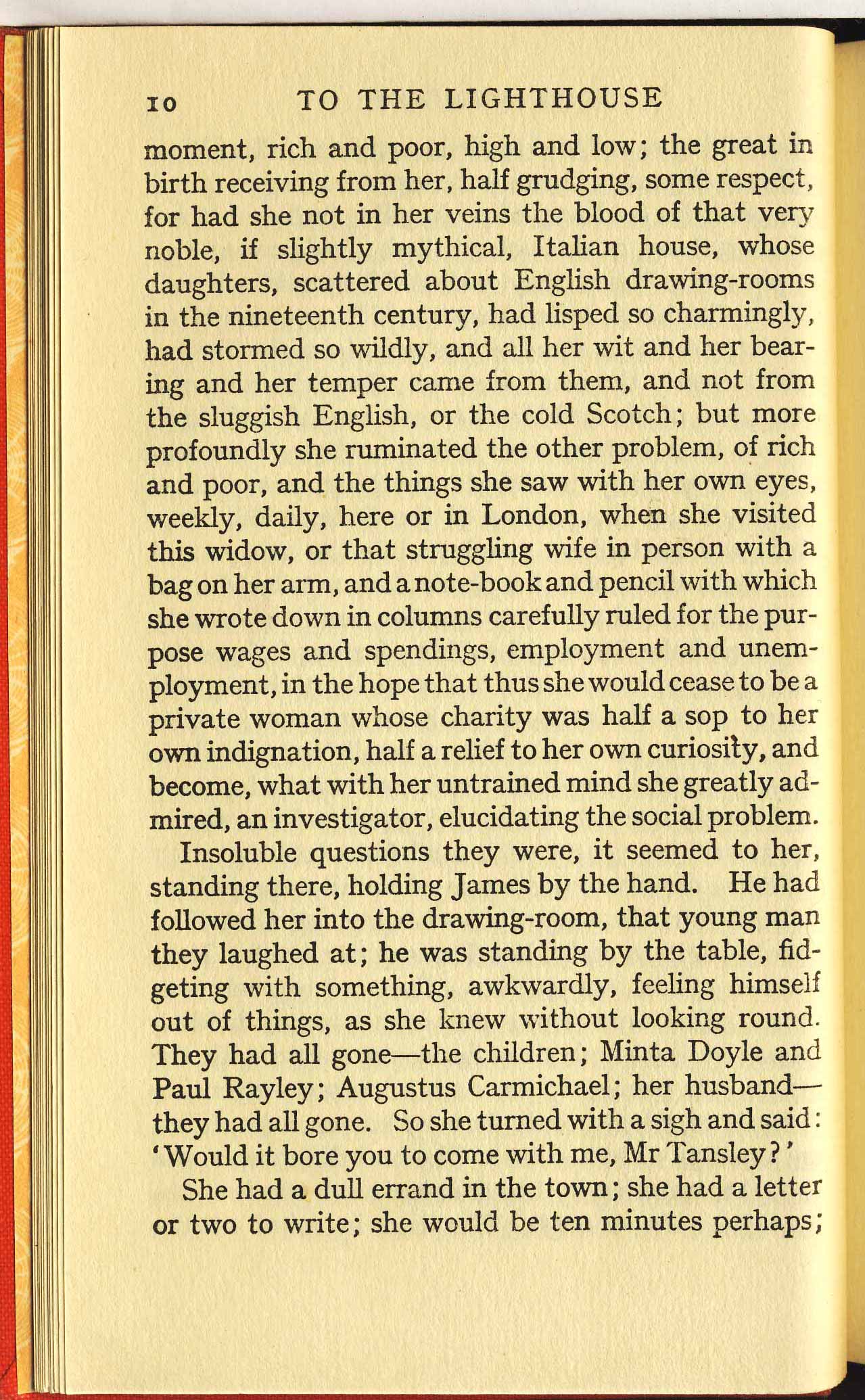Slide to View Image: Opacity 0%

10 TO THE LIGHTHOUSEmoment, rich and poor, high and low; the great inbirth receiving from her, half grudging, some respect,for had she not in her veins the blood of that verynoble, if slightly mythical, Italian house, whosedaughters, scattered about English drawing-roomsin the nineteenth century, had lisped so charmingly,had stormed so wildly, and all her wit and her bear-ing and her temper came from them, and not fromthe sluggish English, or the cold Scotch; but moreprofoundly she ruminated the other problem, of richand poor, and the things she saw with her own eyes,weekly, daily, here or in London, when she visitedthis widow, or that struggling wife in person with abag on her arm, and a note-book and pencil with whichshe wrote down in columns carefully ruled for the pur-pose wages and spendings, employment and unem-ployment, in the hope that thus she would cease to be aprivate woman whose charity was half a sop to herown indignation, half a relief to her own curiosity, andbecome, what with her untrained mind she greatly ad-mired, an investigator, elucidating the social problem.Insoluble questions they were, it seemed to her,standing there, holding James by the hand. He hadfollowed her into the drawing-room, that young manthey laughed at; he was standing by the table, fid-geting with something, awkwardly, feeling himselfout of things, as she knew without looking round.They had all gone—the children; Minta Doyle andPaul Rayley; Augustus Carmichael; her husband—they had all gone. So she turned with a sigh and said:'Would it bore you to come with me, Mr Tansley?'She had a dull errand in the town; she had a letteror two to write; she would be ten minutes perhaps;









